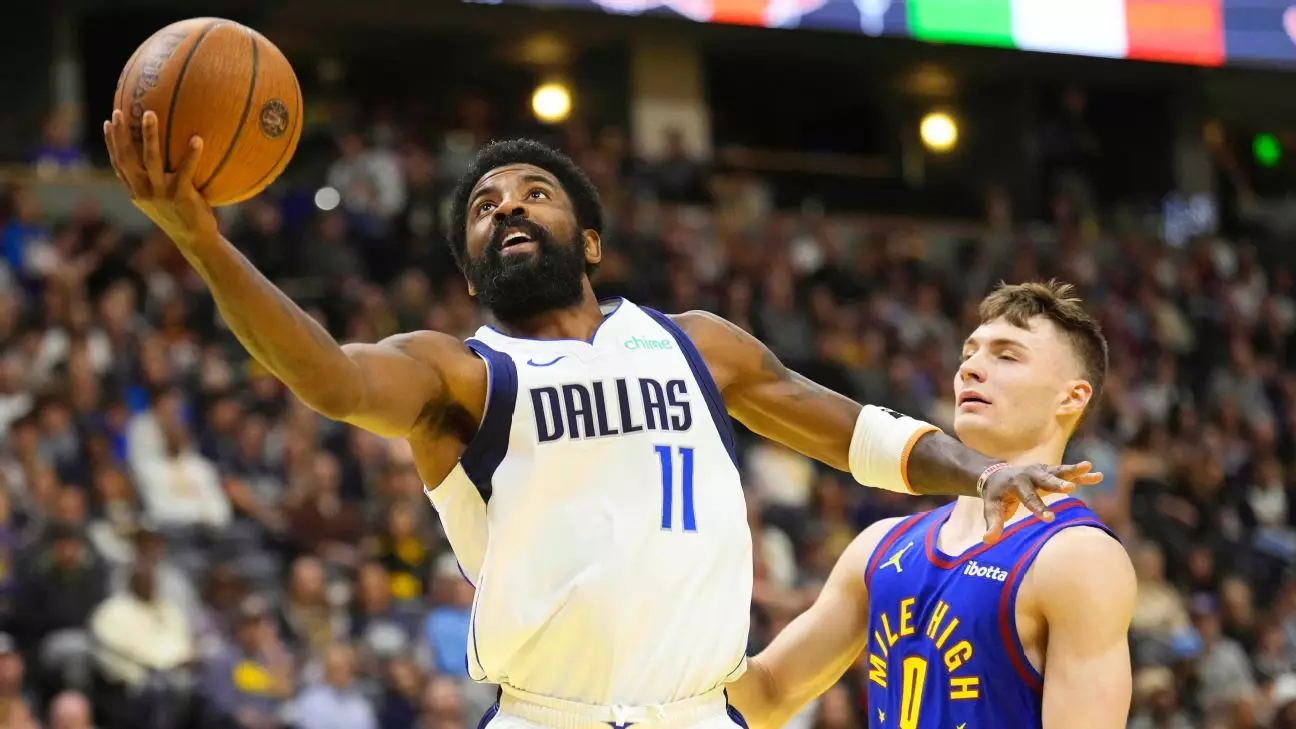Kyrie Irving’s recent return to the Dallas Mavericks’ lineup serves as a poignant reminder of the physical challenges professional athletes face. Following a five-game absence due to injury, Irving took to the court against the Denver Nuggets, only to find himself grappling with significant discomfort. Despite the Mavericks’ defeat, Irving managed to score 11 points but shot a dismal 4-of-18. The statistics paint a bleak picture, but they also reveal the toll a bulging disk in his lower back has taken on his performance and mental state.
Initially reported as a lumbar sprain, Irving’s back injury was later confirmed to be a bulging disk. This distinction is critical as it highlights the severity of the issue. A bulging disk can lead to debilitating pain, impacting not only physical capability but also mental focus. In Irving’s own words, he shared the ordeal of receiving the diagnosis: “The last almost two weeks have sucked.” This blunt admission lays bare the frustrations athletes face when their bodies fail to cooperate, an experience not uncommon among elite competitors.
Irving recounted discussions with medical professionals, teammates, and coaching staff who have dealt with similar injuries, emphasizing the importance of shared experiences in the locker room. It’s not just about physical rehabilitation; there’s a psychological aspect that can weigh heavily on an athlete’s mind when they realize their body isn’t performing as expected.
Irving was candid about the pain he has experienced, revealing that it was intense enough to disrupt even his meditation practices. For an athlete known for mental resilience, this adds depth to his challenge. Fortunately, he has found some relief through medication, illustrating a crucial aspect of managing sports injuries that often goes unacknowledged: the reliance on medical expertise and support systems.
“I just got to be very smart about it,” he stated, underscoring the need for caution in his approach to the game. The necessity of adapting one’s training and playing style in light of such injuries can be a humbling experience, forcing athletes to reevaluate their relationship with the sport they love.
Despite the looming challenges, Irving remains optimistic about continuing to play. He declared his intention to participate in the forthcoming back-to-back against the New Orleans Pelicans, showing a determination that showcases his competitive spirit. This decision will undoubtedly be influenced by his medical team’s assessments and his own body’s response.
At the same time, the Mavericks face further complications as they await the return of their other star, Luka Doncic, who has been sidelined with a calf strain. The absence of both players poses significant challenges for the team as they navigate the relentless demands of the NBA season. Adding to the team’s woes, center Dereck Lively II sustained an ankle injury just moments into the game against the Nuggets, compounding the pressure on the Mavericks.
Kyrie Irving’s journey through injury is emblematic of the struggle many athletes face between their passion for sport and the realities of physical limitations. As Irving grapples with his bulging disk, he not only fights for his own performance but also represents the broader narrative of persistence, adaptability, and the crucial support systems that underpin athletic success. The path ahead may be fraught with uncertainty, but Irving’s resolve to manage his condition exemplifies the unwavering spirit seen in sports today.


Leave a Reply